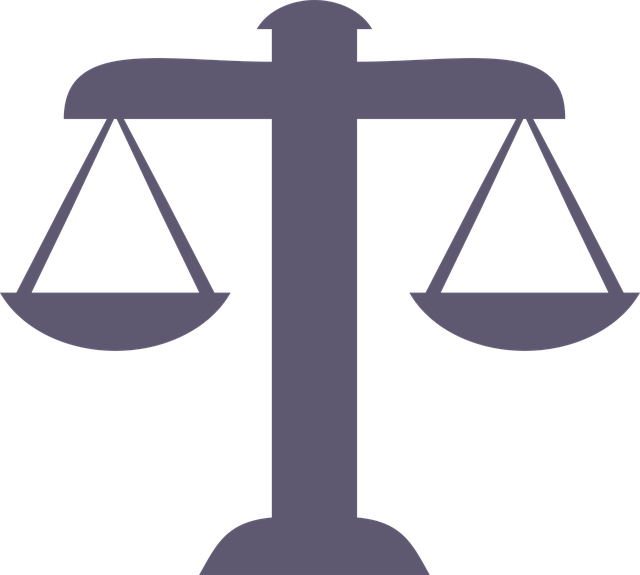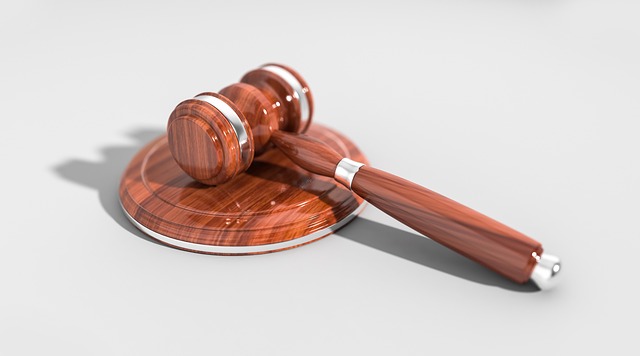Understanding differences between appeal and post-conviction relief is crucial for challenging legal verdicts. Appeals focus on trial errors after a guilty verdict, while post-conviction relief addresses new evidence or ineffective counsel. Prompt action and sector-specific knowledge are vital in complex cases like white-collar defense. Law firms' expertise shown through successful appeals protect clients' rights and safeguard against legal errors throughout the legal journey. After exhausting appeals, post-conviction relief offers broader avenues for challenging convictions, including newly discovered evidence and constitutional violations.
“In the intricate landscape of justice, RF Finance Law Firms play a pivotal role in guiding individuals through legal complexities. This article delves into crucial aspects of post-conviction relief and appeal processes, essential knowledge for those seeking to navigate the system. We explore ‘Differences Between Appeal and Post-Conviction Relief’, providing insights on timing, grounds, and potential outcomes in criminal cases. Learn about effective strategies for challenging verdicts and the invaluable role legal experts play in unlocking paths to justice and freedom.”
- Understanding Appeal Process: When and How to Challenge a Verdict
- Post-Conviction Relief: Exploring Options After Exhausting Appeals
- Key Differences: Timing, Grounds, and Outcomes in Criminal Cases
- Navigating Legal Complexities: Strategies for Successful Challenges
- The Role of Legal Experts: Unlocking Paths to Justice and Freedom
Understanding Appeal Process: When and How to Challenge a Verdict

Understanding the appeal process is crucial for any individual or entity seeking to challenge a legal verdict. An appeal differs from post-conviction relief in its scope and timing. While post-conviction relief typically involves claims that were not previously raised during the initial trial, appeals focus on errors in the application of law or procedures that may have affected the outcome. Individuals or businesses with strong cases can pursue an appeal to ensure justice is served.
When navigating this process, it’s essential to act promptly and understand the rules governing appeals in the respective business sector, especially in complex areas like white-collar defense. An unprecedented track record of successful appeals demonstrates a law firm’s expertise and commitment to their clients’ rights. By understanding when and how to challenge a verdict, individuals can better protect themselves against potential legal errors and ensure fair representation throughout the entire legal process.
Post-Conviction Relief: Exploring Options After Exhausting Appeals

After exhausting all appellate remedies, individuals convicted of crimes often turn to post-conviction relief as a means to explore alternative avenues for legal recourse. While appeals focus on correcting errors that occurred during the initial trial or sentencing, post-conviction relief goes beyond these procedural aspects and delves into broader issues. This process allows defendants to challenge their convictions based on newly discovered evidence, ineffective assistance of counsel, or violations of constitutional rights not previously raised.
Given the nuances and complexities involved in high-stakes cases, seeking legal aid from experienced professionals is paramount for achieving extraordinary results. Skilled attorneys specializing in post-conviction relief can navigate the intricate landscape, ensuring their clients’ voices are heard and their rights protected. By examining every potential angle, these lawyers foster a fair and just process, aiming to set aside unjust convictions and offer new opportunities for those who may have been wrongly accused.
Key Differences: Timing, Grounds, and Outcomes in Criminal Cases

In criminal cases, understanding the Differences Between Appeal and Post-Conviction Relief is crucial for clients and legal strategists alike. While both processes aim to challenge a conviction or sentence, they operate at distinct stages of the judicial process. Appeal typically occurs after a guilty verdict at a jury trial, focusing on errors in the trial proceedings that may have affected the outcome. This could include issues with evidence presentation, jury instructions, or procedural mistakes. In contrast, Post-Conviction Relief (PCR) is a more comprehensive mechanism available to challenge convictions and sentences even after direct appeals have been exhausted. PCR can address grounds such as ineffective assistance of counsel, newly discovered evidence, or errors in sentencing calculations, often involving complex financial analyses in high-stakes cases, including white collar and economic crimes.
The outcomes of these processes also differ significantly. Appeals generally lead to a reexamination of the trial record by an appellate court, which can reverse the conviction or sentence if it finds reversible error. In contrast, PCR involves a de novo review (a fresh look) by the court, considering new evidence and arguments that were not previously available. This process is more likely to result in collateral consequences like vacating a plea or reducing a sentence, offering clients a chance at a metamorphosis in their legal standing.
Navigating Legal Complexities: Strategies for Successful Challenges

Navigating Legal Complexities: Strategies for Successful Challenges
In the realm of RF finance law firms serving diverse clients, understanding the intricate legal landscape is paramount. One key aspect to master is the distinction between appeal and post-conviction relief. While both pathways offer avenues for challenging adverse judgments, they operate on different fronts. Appeal focuses on reviewing procedural errors or misinterpretations of existing laws, aiming to overturn a decision based on strict adherence to legal precedents. On the other hand, post-conviction relief delves into more nuanced grounds, such as ineffective assistance of counsel or newly discovered evidence, providing an opportunity to reexamine the case’s merits.
For RF finance law firms with an unprecedented track record, successfully navigating these complexities involves meticulous strategic planning. By employing a comprehensive approach that combines legal expertise and a deep understanding of their respective business niches, these firms can offer tailored solutions to clients facing challenges. This includes staying abreast of evolving regulations, leveraging relevant case law, and fostering strong ties within the philanthropic and political communities to ensure their clients receive justice in even the most labyrinthine legal scenarios.
The Role of Legal Experts: Unlocking Paths to Justice and Freedom

Legal experts play a pivotal role in navigating complex financial laws, especially when it comes to RF (or any) finance-related cases. These professionals are the keys to unlocking paths to justice and freedom for individuals facing charges related to white collar and economic crimes. They possess the knowledge and skills to interpret intricate legal provisions, ensuring their clients’ rights are protected. By understanding the nuances of appeal processes and post-conviction relief options, they can guide clients towards favorable outcomes, including potential reductions in sentences or even avoiding indictment altogether.
In the realm of RF finance law, the differences between appeal and post-conviction relief are crucial. While appeals focus on reviewing the initial trial for errors in judgment, post-conviction relief is a broader process that allows individuals to challenge their convictions after the appeal period has expired. Legal experts help clients navigate these processes, ensuring they receive the best possible representation and ultimately achieving justice in their respective business ventures.
In navigating the intricate legal landscape, understanding the distinctions between appeal and post-conviction relief is paramount. While appeals focus on challenging verdicts within specific procedural frameworks, post-conviction relief offers avenues to redress systemic issues or newly discovered evidence. By recognizing these key differences in timing, grounds, and outcomes, individuals can strategically pursue justice and freedom through the appropriate legal channels. Leveraging the expertise of specialized law firms, such as RF Finance, significantly enhances these efforts, ensuring a thorough and compelling presentation of cases before the courts.






